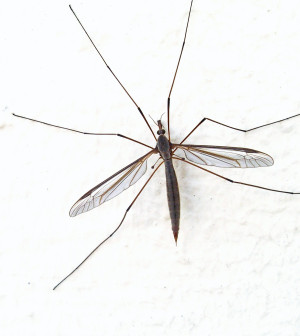- Could Your Grocery Store Meat Be Causing Recurring UTIs?
- Are You Making This Expensive Thermostat Error This Winter?
- Recognizing the Signs of Hypothyroidism
- 10 Strategies to Overcome Insomnia
- Could Artificial Sweeteners Be Aging the Brain Faster?
- Techniques for Soothing Your Nervous System
- Does the Water in Your House Smell Funny? Here’s Why
- Can a Daily Dose of Apple Cider Vinegar Actually Aid Weight Loss?
- 6 Health Beverages That Can Actually Spike Your Blood Sugar
- Treatment Options for Social Anxiety Disorder
U.S. Teens Lag on Recommended Vaccinations

Teens are less likely than younger children to get all their recommended vaccinations, perhaps putting their long-term health at risk, according to a leading group of U.S. pediatricians.
Teens’ rates of vaccination against human papillomavirus (HPV) and the flu are well below the target of 80 percent or higher, according to two reports from the American Academy of Pediatrics (AAP).
“We often find that teenagers don’t visit their doctors as regularly as they did when they were younger, and they may be late or even miss important immunizations recommended to keep them healthy,” Dr. Joseph Bocchini Jr. said in an academy news release.
Bocchini is co-author of the reports and former chair of the AAP Committee on Infectious Diseases.
The immunization rates vary considerably by vaccine and by state, the pediatricians’ group found.
In 2014, only 40 percent of girls and 22 percent of boys had completed the then-recommended three-dose series of HPV vaccination.
A two-dose vaccination schedule is now recommended for youngsters who begin the vaccine series at ages 9 to 14, while the three-dose schedule is still recommended for those who start the series at age 15 or older, and for those with certain immune system disorders.
HPV, a sexually transmitted virus, can cause cervical cancer in women, as well as genital warts and other forms of cancer in men and women. The vaccine is recommended before teens start having sex.
In addition, the researchers found that during the 2015-2016 flu season, only 47 percent of teens aged 13 through 17 were vaccinated against the flu.
According to the U.S. Centers for Disease Control and Prevention, everyone 6 months and older should have a flu shot.
Dr. Henry Bernstein, a lead author of the reports, said, “Parents understandably have questions, especially about immunizations that didn’t exist when they were growing up.”
However, he added, “When physicians take time to explain how the vaccines work to prevent disease, they often find families are receptive. For instance, some [parents] are surprised to learn that the HPV vaccine prevents cervical cancer.”
Bocchini said the academy hopes to “improve teenage vaccination rates by working more closely with families, and helping parents understand the health benefits of staying up-to-date with immunizations.”
The reports were published online Feb. 6 and will appear in the March print issue of the journal Pediatrics.
More information
The U.S. Centers for Disease Control and Prevention has more on vaccines and immunizations.
Source: HealthDay
Copyright © 2026 HealthDay. All rights reserved.










